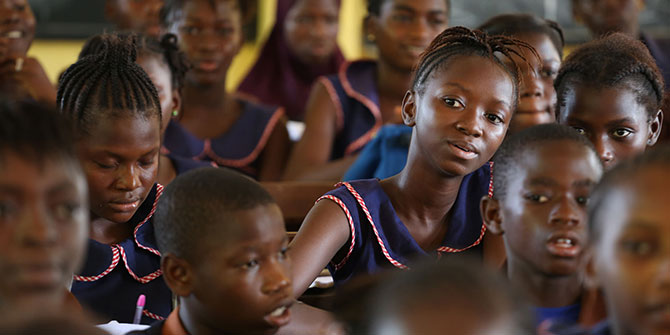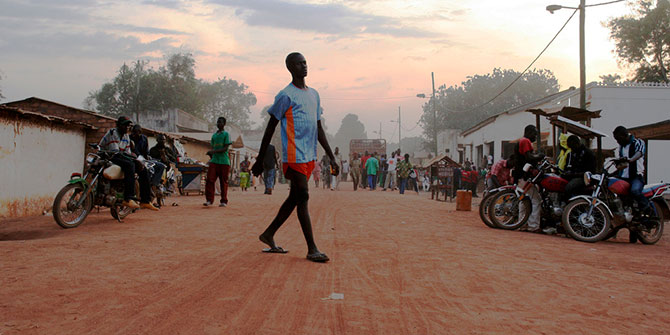LSE alumnus Kwame Marfo analyses the reason behind Ghana’s recent economic woes.
2014 has been a tough year for Ghana. Its key economic indicators have been in freefall, with the cedi plunging 40% to become the world’s worst performing currency. Its national football team suffered the ignominy of crashing out of the World Cup under bizarre circumstances, all self-inflicted. As if that was not enough, the nation humiliatingly went to the IMF cap in hand for help on the eve of what was meant to be its coming-out party, the inaugural US-Africa Summit in August 2014.
Until recently, Ghana was the star pupil of the “Africa Rising” narrative – a virtuous cycle of good governance and economic growth.
South African journalist, Simon Allison observes that role models for African progress are often split into two camps – the “democrats” and the “developers”. The “democrats” include the likes of Tanzania and Senegal which have imperfect but thriving democracies. However, they have been unable to combine these virtuous liberties with stellar economic growth. On the other hand, the “developers” such as Rwanda and Ethiopia have operated with laser-like focus on economic development but have not had any qualms about suppressing dissenting voices that have come in the way of their objectives. There has been a perceived conflict between prioritising economic development, which requires long-term investment, or democratic systems where some of the funds earmarked for investments may be compromised to support patronage networks needed to win votes. African countries, it seems, have had to prioritise either political or economic rights, but not both. “Ghana, almost alone in Africa, was an example that it is possible to implement both socio-economic rights and political rights”, posting 8% GDP growth rate between 2007 and 2012, all the while maintaining a vibrant and noisy democracy. This was the story until a few months ago when the lights in the economy went out.
How did Ghana get into trouble so suddenly? Its fiscal authorities, basking in adulation [not fully deserved] from the international community got a bit ahead of itself, not least with election-related expenditure. London-based portfolio manager, Antoon de Klerk sums it up best; it has been a “highly leveraged growth bet” characterised by “borrowing a lot, leveraging up the country and betting on growth” from increased oil output and high gold prices. Unfortunately, oil output underperformed and the gold price had a mind of its own.
Fortunately, the Ghanaian miracle is far from over. It appears to have caught a second wind. The anticipated doubling of oil output from about 100,000 barrels per day (bpd) and the onset of associated gas production is expected to attract up to 15 billion US dollars in investment in the next couple of years. While this is a welcome development, it is no panacea. The nation’s excessive reliance on the export of primary commodities has left it with limited capacity to absorb external shocks such as a fall in commodity prices while its less-than-robust institutions have weakened its capacity to withstand internal challenges from political clients, for example.
In economic development as in any human endeavour, there is one basic truism – today’s investment is tomorrow’s growth. It is still possible for Ghana to achieve rapid economic development without sacrificing democratic gains of recent years. However, this will require its leaders to muster up the courage to resist the urge to splurge the oil windfall on patronage networks, and rather implement the much-needed structural reforms to wean the economy off its addiction to commodities and also attract diversified and stickier forms of foreign investment to fund its most valuable resource – its human capital, the infrastructure to support its needs, and the institutional capability to strategically make these investments and sustain them. This will set the economy on a mutually reinforcing path of economic development and democratic liberties. To paraphrase Benjamin Franklin, if we waste this opportunity again, posterity will never forgive us.
Kwame Marfo is the founder of West Africa-focused micro-investment fund, Diaspora Capital LLP and a former staffer of the Bank of England. He is an LSE alumnus.






